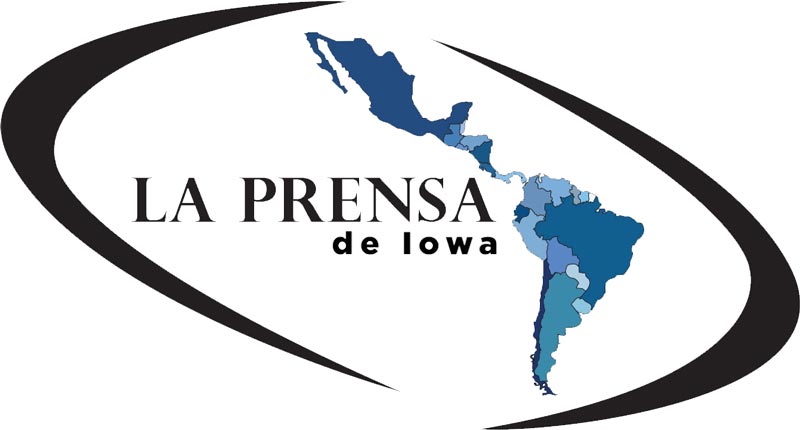Storm Lake comienza una nueva iniciativa para el ahorro de agua
/⇣ English translation provided at the end ⇣
Ashley Martínez-Torres
LA PRENSA Iowa
Las clases han terminado, el verano ha comenzado y el calor se ha apoderado de Iowa durante la primavera a causa de la falta de lluvia. Como resultado, el uso de agua ha incrementado a niveles que usualmente se ven durante el mes de agosto que generalmente es la temporada de sequía.
Con la esperanza de que los residentes no tengan que ser puestos bajo restricciones de agua mandatorias, la ciudad de Storm Lake creó la campaña educacional Martes de Sabiduría de Agua (Tuesday's Water Wisdom por su nombre en inglés) en mayo; recientemente, la ciudad ha llegado a niveles significativos de sequía mucho antes y se espera que continúe durante el verano, según los pronósticos del tiempo.
Según Keri Navratil, manager de la ciudad de Storm Lake, el uso promedio de agua es de 3 millones de galones al día por parte de la ciudad; si el uso de agua pasará los 4 millones de galones al día, la ciudad se vería obligada a poner en efecto las restricciones mandatorias.
“Ya llegamos a los 4 millones de uso diario [...] esto sería algo normal más adelante en el año, pero nunca habíamos visto algo así durante junio,” Keri explicó. “No me sorprendería si en la próxima junta del concejo de la ciudad se pusieran en marcha nuevas restricciones.”
Las restricciones mandatorias son límites del uso de agua durante las horas pico, las cuales son de las 8 a.m. a 8 p.m., las horas con las temperaturas más altas.
“Cuando [las personas usan el agua] durante temperaturas calientes y secas, eso hace que nuestro sistema de agua se estresa y lo pone en peligro de fallar, lo cual podría dificultar el proveer agua en el futuro.”
Keri comentó que el año pasado las restricciones llegaron a ser bastante estrictas; por ejemplo, los residentes solo podían regar sus jardines dos veces a la semana y no les permitían lavar sus carros en sus propiedades. De la misma manera los propietarios podían llegar a recibir multas entre $75 a $500.
Hasta la fecha, la ciudad no ha tenido problemas con el sistema de agua, sin embargo parte de esto se debe a aquellos que han hecho su parte al poner en práctica el ahorro de agua.
“Solo les pedimos [a los residentes] que no rieguen sus jardines, llenen sus albercas [o algo por el estilo] durante las horas pico.”
Para más información sobre el Martes de Sabiduría de Agua, pueden visitar www.stormlake.com; y para más consejos sobre como ahorrar agua, pueden visitar www.epa.gov/watersense.
Translation
Storm Lake starts a new water saving initiative
Ashley Martínez-Torres
LA PRENSA Iowa
School is over, summer has started and heat has been taking over Iowa with little to no rain. As a result, water usage has been increasing to amounts that are usually not seen until the dry season in August.
In hopes that the city wouldn’t require residents to go into the mandatory water restrictions, Storm Lake created the educational campaign, Tuesday’s Water Wisdom, back in May. The city has been going into a significant dry out earlier than past years and expects the dry out to continue late into the future.
According to Storm Lake City Manager Keri Navratil, the city uses an average of 3 million gallons per day, but if the usage goes over 4 million gallons per day, the city would be obligated to go into mandatory water restrictions.
“We were at 4 million gallons [...] we usually see this later in the year, but never in June,” saod Navratil. “I wouldn’t be surprised if, by the next city council meeting, we put on those restrictions.”
The mandatory restrictions consist of limits set by the city regarding the water usage during peak hours, which are between 8 a.m. to 8 p.m., the hottest time of the day.
“When [people use water] during hot, dry temperatures, it stresses out our water system and puts it at risk of not being able to provide water in the future,” Navratil said.
Navratil explained that last year’s restrictions were very strict. For example, residents could only water their yard twice a week and weren’t allowed to wash their cars on their properties. She also said that fines could range from $75 to $500 for not following the restrictions.
So far, the city hasn’t experienced any issues providing water to its residents, but part of it is thanks to those that put in practice water saving habits on a daily basis.
“We only request [the residents] to not water their yards, fill up their pools [or do other stuff like that] during peak hours,” Navratil said.
For more information regarding Tuesday’s Water Wisdom, visit www.stormlake.com; and for more information and water saving tips, visit www.epa.gov/watersense.






































